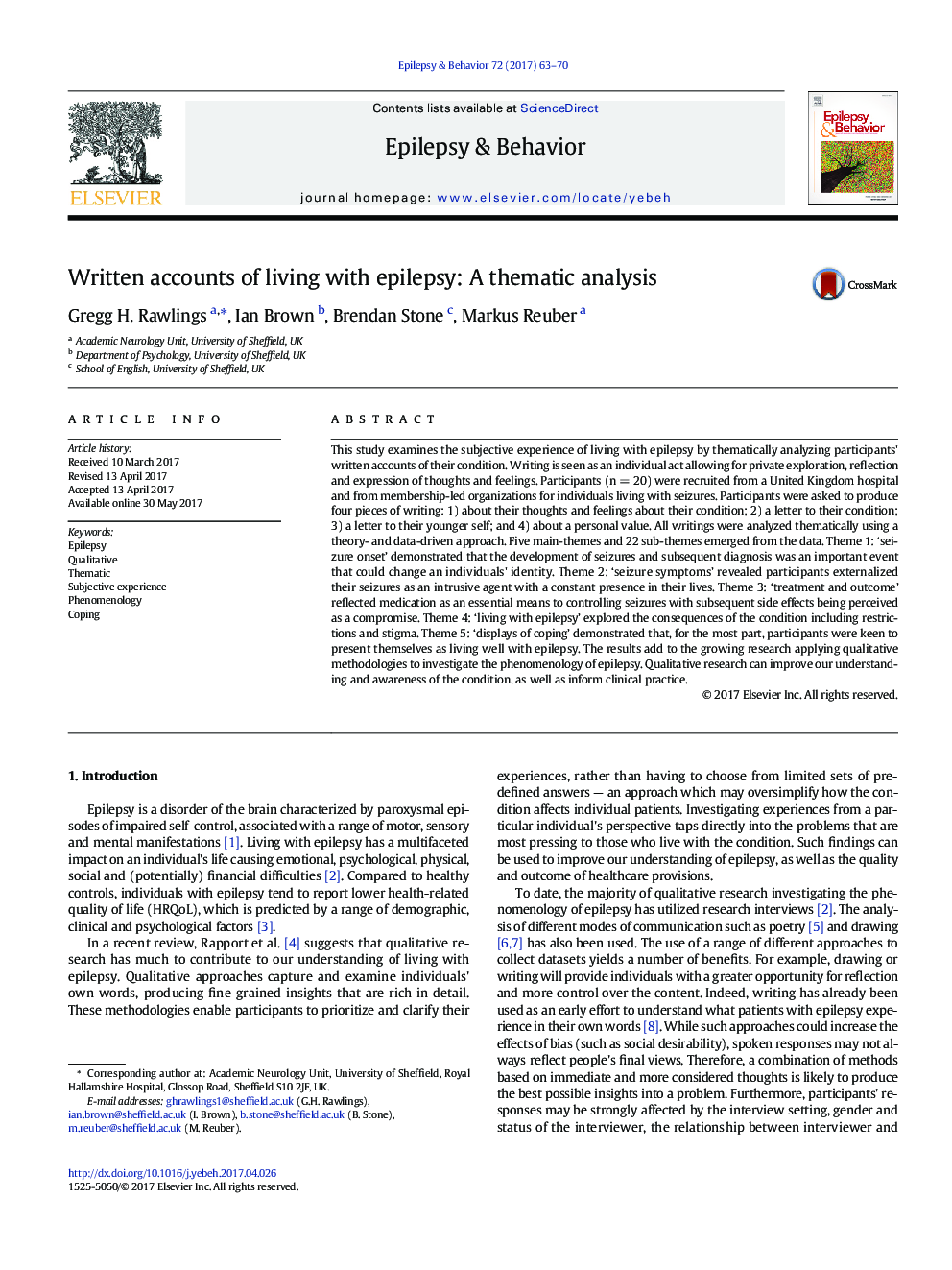| Article ID | Journal | Published Year | Pages | File Type |
|---|---|---|---|---|
| 5628250 | Epilepsy & Behavior | 2017 | 8 Pages |
â¢Written accounts of epilepsy can add to our understanding of the condition.â¢Developing epilepsy represents a significant event in individuals' lives.â¢Some individuals are keen to present themselves as coping well with epilepsy.â¢Different methods to collect qualitative data are needed in epilepsy research.â¢Epilepsy had a pervasive effect on daily life not directly related to seizures.
This study examines the subjective experience of living with epilepsy by thematically analyzing participants' written accounts of their condition. Writing is seen as an individual act allowing for private exploration, reflection and expression of thoughts and feelings. Participants (n = 20) were recruited from a United Kingdom hospital and from membership-led organizations for individuals living with seizures. Participants were asked to produce four pieces of writing: 1) about their thoughts and feelings about their condition; 2) a letter to their condition; 3) a letter to their younger self; and 4) about a personal value. All writings were analyzed thematically using a theory- and data-driven approach. Five main-themes and 22 sub-themes emerged from the data. Theme 1: 'seizure onset' demonstrated that the development of seizures and subsequent diagnosis was an important event that could change an individuals' identity. Theme 2: 'seizure symptoms' revealed participants externalized their seizures as an intrusive agent with a constant presence in their lives. Theme 3: 'treatment and outcome' reflected medication as an essential means to controlling seizures with subsequent side effects being perceived as a compromise. Theme 4: 'living with epilepsy' explored the consequences of the condition including restrictions and stigma. Theme 5: 'displays of coping' demonstrated that, for the most part, participants were keen to present themselves as living well with epilepsy. The results add to the growing research applying qualitative methodologies to investigate the phenomenology of epilepsy. Qualitative research can improve our understanding and awareness of the condition, as well as inform clinical practice.
